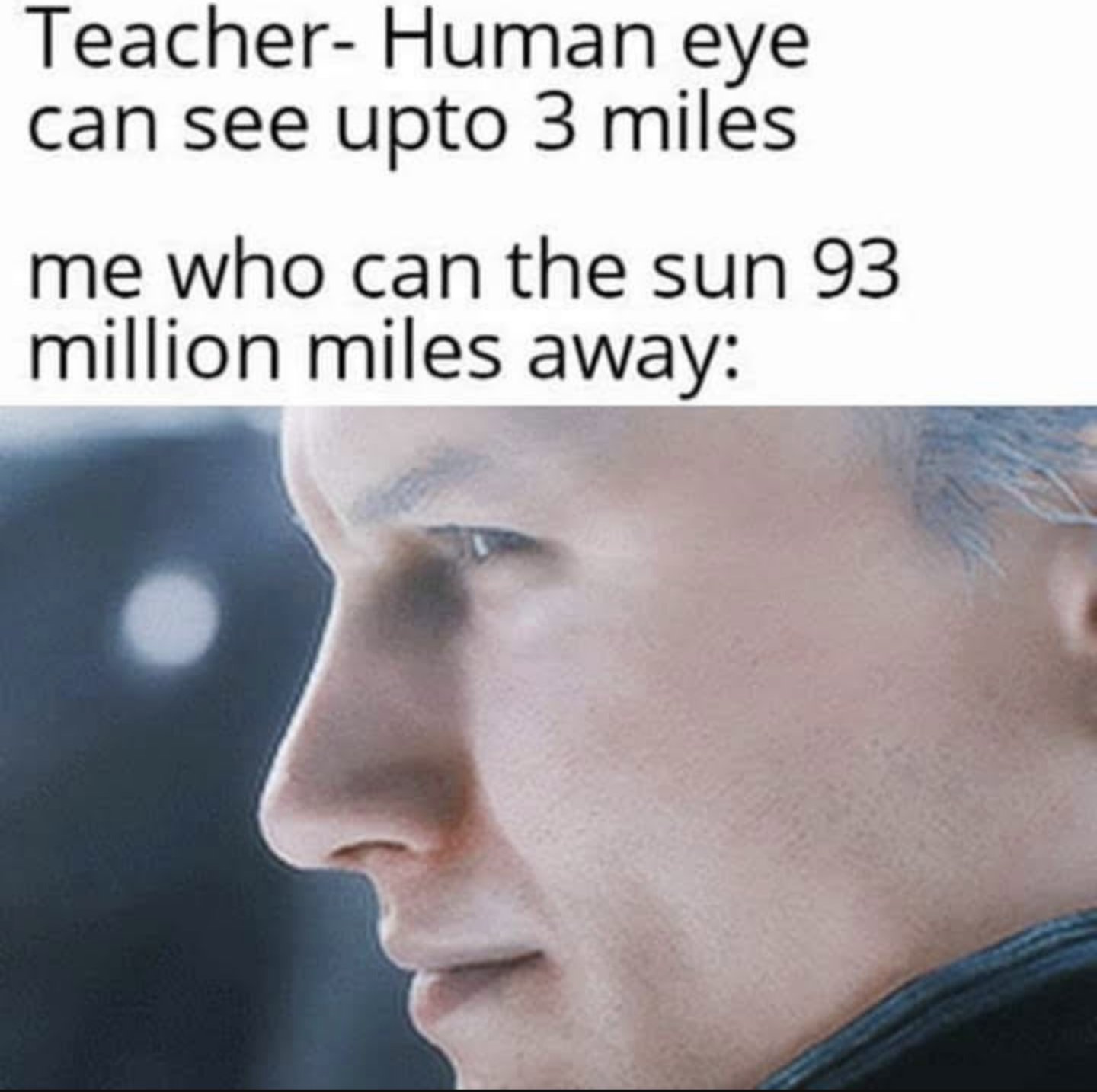this post was submitted on 18 Oct 2024
930 points (95.7% liked)
memes
10417 readers
2279 users here now
Community rules
1. Be civil
No trolling, bigotry or other insulting / annoying behaviour
2. No politics
This is non-politics community. For political memes please go to [email protected]
3. No recent reposts
Check for reposts when posting a meme, you can only repost after 1 month
4. No bots
No bots without the express approval of the mods or the admins
5. No Spam/Ads
No advertisements or spam. This is an instance rule and the only way to live.
Sister communities
- [email protected] : Star Trek memes, chat and shitposts
- [email protected] : Lemmy Shitposts, anything and everything goes.
- [email protected] : Linux themed memes
- [email protected] : for those who love comic stories.
founded 1 year ago
MODERATORS
you are viewing a single comment's thread
view the rest of the comments
view the rest of the comments

Where did you learn that? Is that a real thing people are taught?
3 miles is roughly how far you can see to the horizon (before the curvature of the earth blocks your line of sight)
https://www.omnicalculator.com/physics/distance-to-horizon
I don't want to check miles, but it's pretty on point with what I remember, which is the horizon being 5km away for a 180cm (~6ft) tall person. (3 miles is close enough to 5km)
Getting even a few meters of something under you would drastically change how far you see.
A few extra meters wouldn't be too drastic. From the top of Everest the horizon is about 300km away.
1.8 meters sees ~4.8km. Standing on top of a car, on someone else's shoulders, at say, 5 meters, would give you eight kilometers.
Granted, not too drastic yeah. But like, if you have a tree, and climb it, and it's, say, 15 meters. Now you can see ~14 kilometers.
I'd say going from ~5 to ~14 by climbing a tree (or a mast of a ship) is pretty significant, but not drastic, I'd agree to that, yeah.
I wonder how much it was an advantage at sea, really. Like the scout at the top of your mast would be able to see the enemy ship from very far, while the enemies would technically be able to see only the mast of the ship that the scout is on, making it much harder to spot. I'm sure someone's written about it in tedious length. An upvote to anyone who finds me such texts.
Well, there's a reason old ships had people high up as scouts. These days we just use radar and gps
I mean yes, that's obviously the purpose. I just wonder how effective it was, and would like to read about it.
did you just not read the last paragraph??
Depends how high you are. On a tower you can see much further.
Depends on whether it’s a tall tower or a tiny tower.
It depends on the family drama. You might get pulled away before you can look
Before you can look where? It turns out the damn tower doesn't even have windows! You can see nothing but walls and your stupid boomer mom screaming you're a disappointment!
(Last week I had this, just not in a windowless tower. Fucking boomers)
What about a Tower of Power?
Just googled it now, and I'm seeing the "3 miles" number thrown around a lot.
https://science.howstuffworks.com/question198.htm
That's just weird. The question is about the eye. And the primary "answer" they give is about the geometry of our planet.
Edit: At least the real answer is somewhere further down in the text:
Light emitted farther than 46 billion light years away will never reach you. While traveling an infinite distance the universe expands faster, and light emitted not that far will get so red-shifted that it won't be visible anymore.